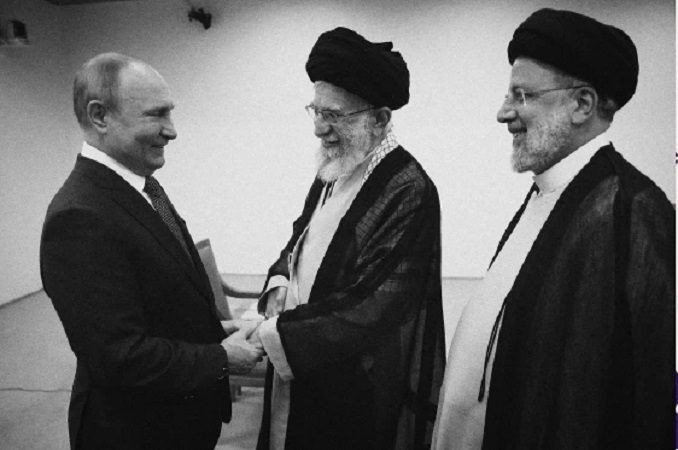
The current tensions between Israel and Iran are indeed significant and have raised concerns globally. It’s important to approach such topics with a well-informed perspective, understanding the complexities of international relations. The situation in the Middle East has always been intricate, with a long history of conflicts and alliances shaping the region’s geopolitical landscape.
The recent seismic activity in Iran has raised questions and concerns among international observers and analysts. On October 5, a seismic event with a magnitude of 4.5 was detected in Aradan, Iran, and was felt as far as Tehran. The timing of this event, closely followed by a minor tremor reported in Israel, has led to speculations about its nature, with some suggesting it fits the profile of a nuclear test explosion.
The region of Iran has been under scrutiny for its nuclear activities, with incidents such as the 2021 Natanz blackout, which was suspected to be caused by a planned blast, adding to the tensions and suspicions regarding Iran’s nuclear intentions. The Natanz nuclear facility, which is monitored by the International Atomic Energy Agency (IAEA), has been a focal point in discussions about Iran’s nuclear program. The country’s nuclear program has been a subject of international concern, with various countries, including the US and Israel, taking measures to prevent the development of nuclear weapons by Iran.
Register for Tekedia Mini-MBA edition 19 (Feb 9 – May 2, 2026): big discounts for early bird.
Tekedia AI in Business Masterclass opens registrations.
Join Tekedia Capital Syndicate and co-invest in great global startups.
Register for Tekedia AI Lab: From Technical Design to Deployment (next edition begins Jan 24 2026).
The historical roots of Israel-Iran tensions can be traced back to the geopolitical and ideological shifts that occurred in the late 20th century. Prior to 1979, Israel and Iran maintained a relatively friendly relationship, especially during the era of the Pahlavi dynasty when Iran was ruled by Shah Mohammad Reza Pahlavi. This period was characterized by mutual cooperation, as Iran was considered one of Israel’s closest allies in the region.
However, the Iranian Revolution of 1979 marked a turning point, as the establishment of the Islamic Republic under Ayatollah Ruhollah Khomeini brought about a new era of hostility towards Israel. The new regime in Iran viewed Israel as an illegitimate state and an ally of the Western powers that had supported the Shah’s authoritarian rule.
The animosity intensified over the years, with Iran supporting various groups and militias in the region, such as Hezbollah in Lebanon and Hamas in the Palestinian territories, which have been involved in conflicts with Israel. These proxies have been a significant aspect of the tensions, as they directly impact Israel’s security and regional stability.
Recent events have escalated tensions, with incidents such as missile attacks and strategic strikes being reported. These actions have not only affected the two nations involved but also have broader implications for regional stability. The international community is closely monitoring the situation, hoping for a de-escalation of hostilities and a peaceful resolution.
It’s crucial to rely on accurate and up-to-date information from trusted news sources when discussing such sensitive topics. Misinformation can lead to unnecessary panic and a distorted view of the events. As responsible citizens and members of the global community, it’s our duty to seek out facts and engage in discussions that promote understanding and peace.
It is important to note that Iran has consistently maintained that its nuclear technology is intended for peaceful purposes, such as power generation. However, the withdrawal of the US from the Joint Comprehensive Plan of Action (JCPOA) and Iran’s subsequent actions of enriching uranium beyond specified limits have only intensified the global apprehension.
The recent seismic event has not been officially confirmed as a nuclear test explosion, and there is a need for careful analysis and verification by relevant international authorities. Seismic stations, such as the one in Armenia, have detected the event but noted the absence of seismic compression waves, which typically accompany natural earthquakes, suggesting that the incident may resemble an explosion more than an earthquake.
The situation remains delicate, and the international community awaits further information and clarification. It is crucial for all parties involved to engage in dialogue and pursue diplomatic solutions to address the concerns surrounding Iran’s nuclear activities and ensure regional and global security.



